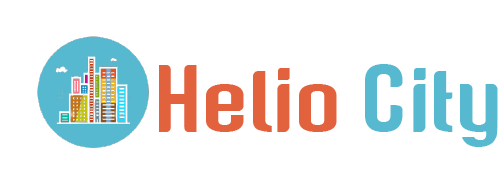Costa Rica is a beautiful country with warm and friendly people, rich culture, and a booming tourist industry. The English language is essential among the locals because it enables them to communicate with the vast number of tourists who visit the country. This is why there is a high demand for TEFL (Teaching English as a Foreign Language) teachers in Costa Rica. However, as an ESL (English as a Second Language) teacher, you need to be prepared and equipped with knowledge and skills to make the most of your teaching experience in Costa Rica. In this article, we will discuss strategies for successful TEFL in Costa Rica and how to make the most of your time in this beautiful country.
Understand your Students: As a TEFL teacher, it is crucial that you understand the needs and requirements of your students. In Costa Rica, the majority of the students are visual and auditory learners, so it is essential to incorporate a variety of teaching methods into your lessons that cater to their learning preferences. ESL students in Costa Rica are often from different backgrounds and levels of English proficiency, so adapting to their individual learning pace and style is necessary. Furthermore, incorporating Costa Rican culture and language into your lessons is an excellent way to engage students, foster cultural understanding and make your lessons more relevant.
Establish a positive learning environment: Students learn best when they feel safe, respected, and confident in their abilities. Create a warm, caring classroom environment where students feel comfortable and free to participate in their learning. Establishing clear expectations in terms of behavior, attendance, and classwork is vital. Rewarding positive behavior and progress is also an effective way to create a positive and encouraging environment. Make every effort to get to know your students and their interests outside of the classroom, such as their hobbies, cultural traditions, etc. This allows you to create more meaningful and engaging lessons that appeal to their individual interests.
Incorporate Technology: Technology can be a powerful tool in the ESL classroom. The majority of Costa Rican students have access to smartphones and laptops, which means there are limitless resources available at your disposal. You can use technology to create interactive and engaging lessons, utilizing different online platforms, apps, videos, and games. Creating a Facebook group or WhatsApp chat for your class is also an excellent way to foster communication and provide resources for your students outside of the classroom.
Involve Parents and the Community: Involving parents and the community is an effective way to create a supportive network for your students. Reach out to parents and invite them to attend open-house events, parent-teacher conferences, and school activities. You can also engage with the community by participating in cultural events, volunteering for local charities, and joining clubs and organizations. By building relationships with parents and the community, you get a better understanding of students’ backgrounds and values, which you can utilize to make your lessons more effective, relevant, and engaging.
Professional Development: Finally, professional development is essential for every TEFL teacher to keep up with changes and advancements in education. Attend workshops, conferences, and online training sessions to stay current with teaching methods, trends, and techniques. Furthermore, participating in a local teacher network, establishing a mentor-mentee relationship, and reflecting on your teaching are excellent ways to improve your teaching skills, receive support, and develop your career.
Conclusion:
As a TEFL teacher, teaching in Costa Rica can be an enriching and rewarding experience if you are equipped with the right knowledge and skills. Understanding your students, establishing a positive learning environment, incorporating technology, involving parents and the community, and continuous professional development are strategies that can enhance the quality of your teaching and foster student success. By implementing these strategies, you can make a significant impact on the lives of your students and contribute to making a positive change in the world.




